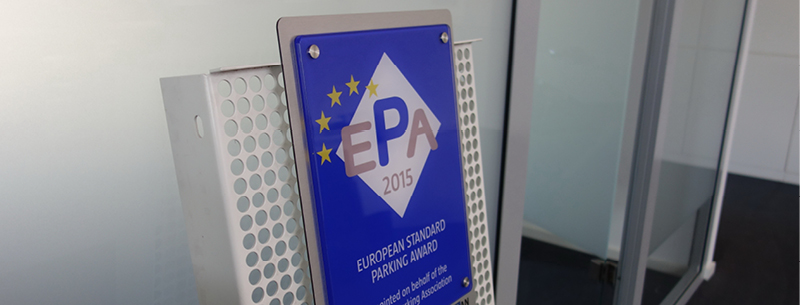During the past 12 months, construction firms have had to adapt, adjust ways of working, and deal with frequent new demands and challenges – from managing health and safety on site to supply-chain issues. Tomer Meirom, managing director of HUBER Car Park Systems UK, reflects on what has been achieved, green shoots of recovery, and the changing market
One year ago, I wrote an article for Parking News about the challenges we faced at the beginning of the Covid-19 pandemic to ensure we were ’keeping the show on the road’.* The early challenges were operational: how to get logistics, materials and, most importantly, the workforce to site; how to maintain health and safety; and how to complete the work in time.
The virus certainly kept us on our toes throughout this year! Changing lockdown rules and travel restrictions forced us to adjust our methods of work to account for them – a demanding and often lengthy process. Despite the challenges, we have been successful in delivering our projects safely and on time. Since then, hundreds – probably thousands – of articles have been published about how the pandemic has changed our lives in all manner of ways. What, then, did it change for us in parking construction?
Everything changed
In its early phases, the pandemic raised uncertainty across the economy. In the summer of 2020, we saw a decline in tenders coming to the market. This has been felt throughout the construction industry and has led to reduced production of building supplies across the world. Specifically, in the parking industry, travel (airport) tenders dropped off the radar completely, as did shopping and high street-related facilities, and commuter car parks. We have not seen these segments recover yet.
Other parts of the construction industry started bouncing back at the end of last summer. With consumer buying going up, the financial markets holding strong, and the general view that the crisis will not be as detrimental as first anticipated, construction activities started picking up again. We saw a clear incline in the construction of hospital car park facilities, the e-commerce and delivery market segment, and home entertainment-related businesses. This revival in the construction market created high demand for materials. However, this demand found a market with a record low supply, so material prices jumped significantly.
Future skills
As more vaccines are administered, we expect to see a stabilisation of the market. Supply and demand will balance out again, as expected by the basic rules of economics, and prices will stabilise. Though all of us have become accustomed to doing everything from home, we all miss human interactions. Travelling might not be as easy as it was, but will pick up again shortly by all expectations. More work and shopping will probably be done remotely, but more traditional modes of working and shopping will still be required – even favoured. So we expect more onsite parking to be needed again. The past 12 months have given us immense confidence in realising that we can adapt to circumstances beyond our control, if necessary. The pandemic forced us to become more flexible, agile and resilient, and we must make sure we maintain these skills for the future.





